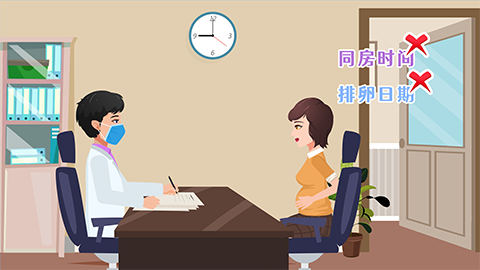What to do if the ovulation passage is blocked
Generally, an obstructed ovulation pathway refers to ovulation dysfunction, which may be caused by structural abnormalities, psychological factors, salpingitis, endometriosis, polycystic ovary syndrome (PCOS), and other conditions. Treatment options include general therapy and medication, as directed by a physician. A detailed analysis is as follows:

1. Structural Abnormalities
Some women may be born with structural abnormalities of the fallopian tubes, such as excessive length, narrow diameter, or increased curvature, all of which can hinder the release of eggs. As this is a congenital condition, it cannot be entirely prevented through daily measures. However, early gynecological examinations can help understand the characteristics of one's reproductive system and allow for the selection of appropriate conception methods.
2. Psychological Factors
Long-term mental stress, anxiety, or depression may disrupt the balance of the female endocrine system, indirectly leading to ovulation dysfunction. Maintaining psychological well-being and actively managing life stress through exercise, meditation, and psychological counseling can help regulate emotions.
3. Salpingitis (Fallopian Tube Inflammation)
Salpingitis is usually caused by bacterial infections, such as Neisseria gonorrhoeae or Chlamydia trachomatis. Inflammation can cause swelling, adhesion, or blockage of the fallopian tubes, thereby affecting the normal release of eggs. Accompanying symptoms may include lower abdominal pain, increased vaginal discharge, and fever. Under medical guidance, medications such as Ceftriaxone Sodium for injection, Azithromycin tablets, and Metronidazole suppositories may be used for treatment.
4. Endometriosis
Endometriosis may be related to endometrial implantation, immune dysfunction, genetic factors, and environmental influences. Abnormal growth of endometrial cells outside the uterus may compress or block the fallopian tubes, affecting the passage of eggs. Symptoms may include dysmenorrhea, infertility, and pain during sexual intercourse. Treatment options, as recommended by a physician, may include medications such as Dydrogesterone tablets, Ibuprofen capsules, and subcutaneous injections of Leuprolide Acetate.
5. Polycystic Ovary Syndrome (PCOS)
Polycystic ovary syndrome may be associated with various factors, including genetic and environmental influences. Ovarian enlargement and abnormal follicular development can lead to ovulation dysfunction, along with changes in the peritubal environment. Other symptoms may include menstrual irregularities, obesity, hirsutism, and acne. Patients should follow medical advice for treatment with medications such as Ethinylestradiol/Cyproterone Acetate tablets, Spironolactone tablets, and Clomiphene citrate tablets.
To prevent the occurrence of this condition, it is important to undergo regular medical check-ups in daily life to monitor the health of the reproductive system and promptly identify and manage potential issues. Maintaining psychological well-being through activities such as exercise and social interaction can also help relieve stress and support a healthy mental state.






